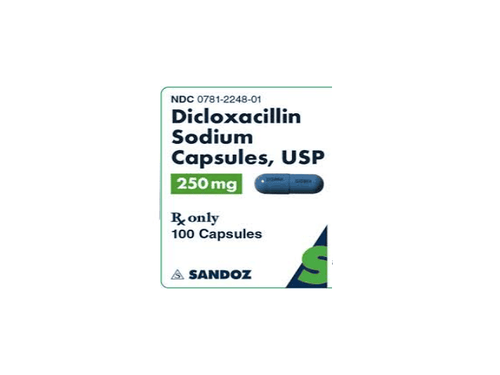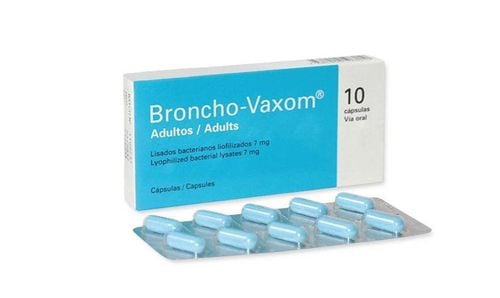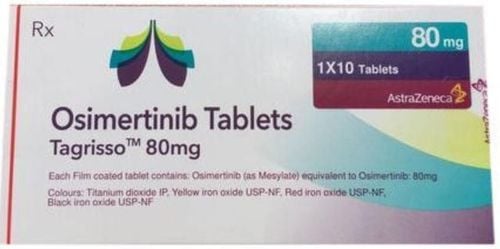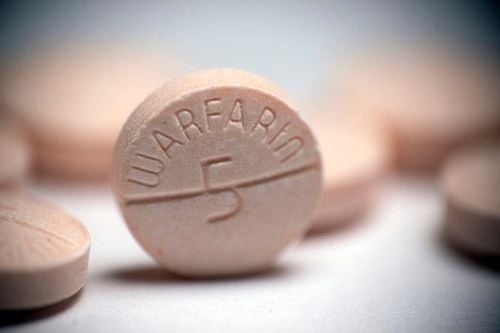This is an automatically translated article.
Amiktale drug is used by intramuscular or intravenous injection to treat infections related to respiratory tract, skin, urinary tract, gynecology,... To use Amiktale drug effectively and prevent the risk of risks. If you experience adverse side effects, you should take the drug according to the doctor's regimen.
1. What is Amiktale?
What is Amiktale drug? Amiktale is an effective antifungal, antiparasitic and anti-infective agent used for infections caused by susceptible bacteria. Amiktale is manufactured by Korea Prime Pharma Co., Ltd - Korea and is currently being circulated in Vietnam.
Amiktale drug is prepared in the form of an injection solution with the main ingredient being Amikacin sulfate 250mg. In addition, the manufacturer also adds a number of other excipients to enhance the effectiveness of the main active ingredient.
2. What does Amiktale do?
2.1 Uses of the active ingredient Amikacin sulfate Amikacin sulfate is known as a semi-synthetic antibiotic of the Aminoglycoside family, which has a rapid bactericidal effect thanks to its ability to bind to the 30S subunit of the ribosome and prevent the synthesis of bacterial protein complexes. In anaerobic environments, the activity of Amikacin is significantly reduced. When the concentration of Amikacin has fallen below the minimum inhibitory concentration, the drug remains bactericidal activity. This shows that Amikacin has a post-antibiotic effect and is effective when administered once a day.
According to research, the drug Amikacin in Amiktale is effective against the following sensitive bacteria:
Gram-negative bacteria, such as Escherichia coli, Pseudomonas sp., Providencia sp., Proteus sp., Enterobacter sp., Klebsiella sp., Serratia sp., Citrobacter freundii, Acinetobacter sp.,... Gram-positive bacteria, such as penicillinase-producing/non-penicillinase-producing staphylococci, methicillin-resistant bacteria, pneumococcus, streptococcus and others enterococci. Currently, the active ingredient Amikacin is often applied to repel bacterial infections such as respiratory tract infections, abdominal cavity infections, musculoskeletal infections, bacteremia, soft tissue, skin,... In some cases For certain, Amikacin is also used to effectively treat other diseases as prescribed by doctors.
2.2 Indications – Contraindication to use Amiktale drug Amiktale is indicated for use in the treatment of the following infections:
Infections caused by susceptible Gram-negative aerobic and Gram-positive bacteria (including Pseudomonas Pseudomonas). sp.). Respiratory tract infections (upper and lower). Urinary tract infections. Skin or soft tissue infections. Abdominal infection. Sepsis. Gynecological infections. Osteoarthritis infection. However, it is necessary to avoid self-administration of Amiktale in the following patients without the approval of a doctor:
People with a history of hypersensitivity or allergy to the active ingredient Amikacin or any auxiliary excipients that may contain active ingredients. in medicine. Amiktale is contraindicated in patients with myasthenia gravis. Relative contraindications to the use of Amiktale in pregnant women and nursing mothers.
3. Dosage and instructions for using Amiktale effectively
3.1 Instructions on how to take Amiktale medicine Amiktale drug is used by intramuscular or intravenous injection depending on the doctor's prescription. Amiktale is to be taken every 8 hours or as directed by a physician. Dosage of Amiktale will be determined based on the patient's weight, pathology as well as the patient's ability to respond to drugs. In addition, the doctor may also recommend that the patient perform some tests such as measuring drug levels in the blood or checking kidney function to determine the best dose of Amiktale for the patient's health condition.
In case you treat yourself with Amiktale at home, carefully read the instructions for use and preparation from your doctor. In addition, before injecting the drug, it is necessary to visually check whether the solution is discolored or contains foreign particles. If one of the above two problems occurs, you absolutely must not use the drug.
Amikacin antibiotic will work most effectively when the concentration of the drug in the body is maintained at a stable level. Therefore, you should take the medicine at reasonable times, preferably at the same time each day to avoid missing doses. In addition, you also need to continue using Amiktale until the full course of treatment is finished. In case the disease worsens or does not improve, you need to notify your doctor immediately for treatment.
3.2 Recommended dose of Amiktale The following is the dose to treat bacterial infections with Amiktale drug according to the general recommendations of doctors:
Intramuscular dose: Children, children and adults with normal renal function use dose 15mg/kg body weight/day, divided into several times, each time about 8-12 hours apart. The total daily dose of Amikacin for adults should not exceed 1.5g. Intravenous dose: Use the same as the intramuscular dose, but the solution should be injected slowly over 2-3 minutes. In the case of intravenous infusion, Amiktale solution should be infused over 30-60 minutes for adults and 1-2 hours for children. Amiktale can be injected into the spinal cord at a dose of 0.5mg / kg body weight / 48 hours / time, used 3-4 times after the patient has cleared the infection. For those with impaired renal function or on hemodialysis, the dose should be adjusted accordingly based on assessment of serum concentrations as well as renal function. Amiktale dosage for this patient population is about 5 – 7.5mg/kg body weight/day.
During the treatment, the patient needs to apply the correct dose of Amiktale. Avoid arbitrarily adjusting the dose or duration of Amiktale medication according to personal preferences.
4. What side effects does Amiktale cause when used?
If you experience any of the following side effects while taking Amiktale, you need to stop treatment and notify your doctor immediately, specifically:
Symptoms of an allergic reaction such as throat tightness, shortness of breath appear gas, swelling of the lips, rash, swelling of the tongue, swelling of the face, or fainting. Urinary retention or difficulty urinating. Hearing loss or tinnitus feeling. Skin itching, stiffness, convulsions or muscle twitching. Abdominal cramps or severe diarrhea. Loss of balance or dizziness easily. In addition, some less dangerous side effects may occur when you use Amiktale, such as:
Loss of appetite. Increased thirst. Rash. Vomiting. Nausea. Not all patients taking Amiktale are at risk for these side effects. There are still some other adverse reactions that have not been mentioned. If you have any concerns about side effects during treatment with Amiktale, please discuss further with your healthcare provider.
5. Notes and cautions when using Amiktale
Before you start treatment with Amiktale, there are a few things to keep in mind:
Tell your doctor if you have a history of allergic reactions to Gentamicin (Garamycin), Amikacin, Netilmicin (Netromycin), Neomycin, Tobramycin (Nebcin). ), Kanamycin (Kantrex), or any other medicine. Tell your doctor about any medications you are taking, especially cisplatin (Platinol), diuretics, antibiotics, amphotericin, and vitamins. Tell your doctor if you have or have any conditions such as dizziness, ringing in your ears, hearing loss, muscle or nerve problems, kidney disease, Parkinson's disease, or severe myasthenia gravis. Tell your doctor if you are planning to become pregnant, are pregnant or breast-feeding. Amikacin can harm an unborn baby. Therefore you need to stop taking Amiktale and tell your doctor immediately if you find out that you are pregnant while taking this medicine. In the event of an overdose of Amiktale and experiencing signs of kidney toxicity, nerve, deafness, breathing difficulties or muscle paralysis; Patients need immediate medical attention for treatment. The doctor may recommend that the patient undergo hemodialysis to remove Amikacin from the blood.
In addition, Amiktale users should also be aware of some other drugs that may interact when combined, such as:
Ataluren. Amifampridine . Cisatracurium. Colistimethate Sodium. Atracurium. Alcuronium. Decamethonium. Fazadinium. Cidofovir. Ethacrynic Acid. Doxacurium. Mivacurium. Drug interactions can increase the risk of side effects or change the ability of medications to work, experts say. Ideally, you should avoid arbitrarily combining Amiktale with other drugs without a doctor's prescription.
Follow Vinmec International General Hospital website to get more health, nutrition and beauty information to protect the health of yourself and your loved ones in your family.
Please dial HOTLINE for more information or register for an appointment HERE. Download MyVinmec app to make appointments faster and to manage your bookings easily.













